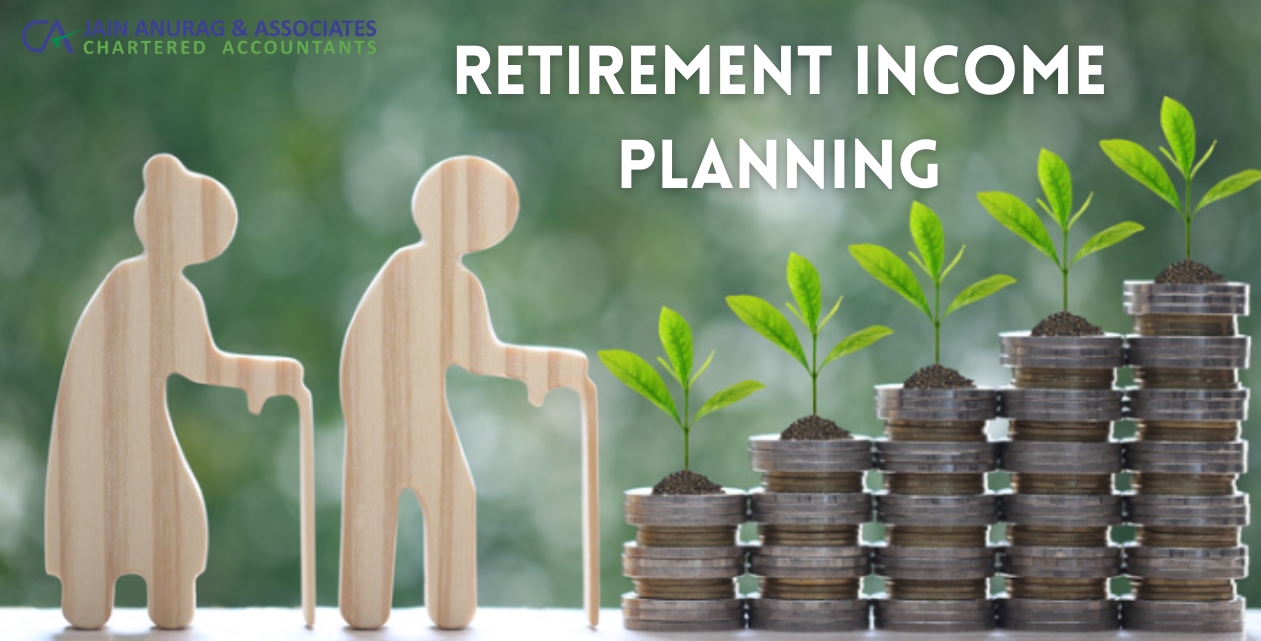Feb 22, 2024, Posted by Admin
Retirement Income Planning

Retirement Income Planning
Retirement income planning is a crucial aspect of ensuring financial security during your retirement years. Proper planning helps you determine how much income you will need, where it will come from, and how to make the most of your retirement savings. Here are few steps to help you plan your retirement income:
Assess Your Retirement Expenses:
Estimate your expected living expenses in retirement, including housing, healthcare, food, transportation, and leisure activities. Consider potential healthcare costs, as they tend to increase with age.
Determine Your Retirement Income Sources:
Identify all potential sources of income, such as Social Security, pension plans, retirement savings and other investments. Understand the eligibility criteria and payout options for each income source.
Evaluate Social Security Strategies:
To assess your health and family longevity understand when you are eligible to receive Social Security benefits. Consider the optimal time to start receiving benefits, as the age you begin can affect the amount you receive. If you expect to live a long life, delaying Social Security may make sense to maximize lifetime benefits.
Calculate Your Retirement Savings Needs:
Estimate how much you will need to withdraw from your retirement savings each year to meet your expenses. Consider using the 4% rule as a guideline for withdrawal rates.
Here is how the 4% rule works:
In the first year of retirement, withdraw 4% of your initial portfolio value.
In the following years, adjust the withdrawal amount for inflation. This helps to maintain purchasing power over time.
The assumption is that, historically, a portfolio split between stocks and bonds has been able to support this withdrawal rate over a 30-year period.
Assess Investment Allocation:
Review and adjust your investment portfolio based on your risk tolerance and time horizon. As you approach retirement, consider a more conservative asset allocation to protect your savings. Commonly, a mix of stocks and bonds is used. Stocks may offer higher returns but come with higher volatility, while bonds provide stability but lower potential returns.
Create a Withdrawal Strategy:
Develop a systematic withdrawal strategy that aligns with your income needs and risk tolerance.
Consider tax implications and withdrawal order to optimize your tax efficiency. Diversify your investments across different types of accounts (taxable, tax-deferred, and tax-free) to have flexibility in choosing which accounts to withdraw from.
Taxable accounts may include capital gains, dividends, and interest income.
Plan for Healthcare Costs:
Include potential healthcare expenses in your budget. Explore health insurance options, such as Medicare, and consider supplemental insurance.
Budget for Inflation:
Factor in the impact of inflation on your expenses.
Adjust your retirement income plan to ensure it keeps pace with rising costs over time.
Emergency Fund:
Maintain an emergency fund to cover unexpected expenses and avoid tapping into your retirement savings prematurely. Keep your emergency fund in a separate savings account to prevent you from dipping into it for non-emergencies. Set up automatic transfers from your pay check to your emergency fund to ensure consistent contributions.
Aim to have 3 to 6 months' worth of living expenses and medical expenses saved for emergencies. This can vary based on your individual circumstances.
Review and Adjust Regularly:
Regularly reassess your retirement income plan based on changing circumstances, such as health, lifestyle and market conditions. Timely, review and update your emergency fund based on changes in your financial situation.
Make an adjustment as needed to stay on track.
Consider Professional Advice:
Consult with a financial advisor or retirement planner to get personalized advice based on your unique situation. Remember that retirement income planning is an on-going process. Regularly revisit and adjust your plan as needed to ensure a comfortable and secure retirement.
We Jain Anurag & Associates, Chartered Accountants provide end-to-end services to consult retirement plan, Investment and tax consultancy to our clients, you can connect with our expert team to avail the Financial Advisory services.